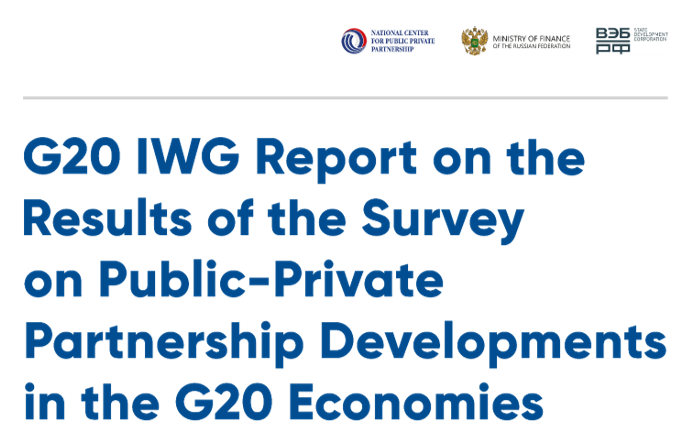Publications
Filter by
690 results found
Long term private investors have long started investing in those assets, but the potential - and the need - for more and better private investment remains huge. Drawing on the vast pool of experience and contributions of LTIIA members, this report analyses the current constraints and current challenges limiting institutional investors’ share of the market.

To increase its global competitiveness, Brazil created an ambitious strategy to attract more private investment in its infrastructure. A partnership with the Global Infrastructure Hub helped Brazil implement and realise this strategy.

In 2021, the Global Infrastructure Hub published the findings of a survey of G20 members that collected case studies and examples of projects or programs that demonstrate the benefits of QII or exemplify good practice in their countries or in recipient countries. This survey was undertaken at the request of the G20 Infrastructure Working Group (IWG). It can be accessed here.

This map summarizes information on the connectivity of 67 important South Asian cities concerning infrastructure networks.

The ITF Transport Outlook provides an overview of recent trends and near-term prospects for the transport sector at a global level as well as long-term prospects for transport demand to 2050.




World Bank Benchmarking Infrastructure Development 2020

The report illustartes the challenges and gaps in infrastructure provision in Africa and the benefits from improved urban and rural infrastructure. It also discusses funding and financing and the role of the AfDB in infrastructure.

This report presents the findings of the analysis of unit costs and cost overruns of road infrastructure projects in Africa.



Risk allocation is at the centre of every PPP transaction, and a deep understanding of the risk allocation arrangements is a precondition to the drafting of every successful PPP contract.

The paper Partnering to Build a Better World: MDBs Common Approaches to Supporting Infrastructure Development presents a brief description of how MDBs work with their Borrowing Member Countries (BMCs) .


InfraTech is defined by the G20’s Infrastructure Working Group (IWG) as “the integration of material, machine, and digital technologies across the infrastructure lifecycle” and is supported by three reference notes produced in collaboration between the G20 IWG, the World Bank and the GI Hub: 1) The InfraTech Stock Take of Use Cases; 2) The Value Drivers for InfraTech; and 3) The InfraTech Policy Toolkit.


In just a few years, ESG, also known as sustainable or responsible investing, has moved from a slightly idealistic nicheto front-page, a mainstream dimension for investors, one that strongly influences the performance and resilience of their investment over time. This is particularly the case in infrastructure, in view of its wide reaching and long-term consequences for the community.


The G20 Infrastructure Working Group (IWG) Survey on PPP Development underlying this Report provides reference on the frameworks for infrastructure financing through Public-Private Partnership in G20 economies



The Reference tool is meant to serve as a practical tool to help governments and other stakeholders understand and implement the critical success factors that deliver inclusive infrastructure.


 View PDF
View PDF

